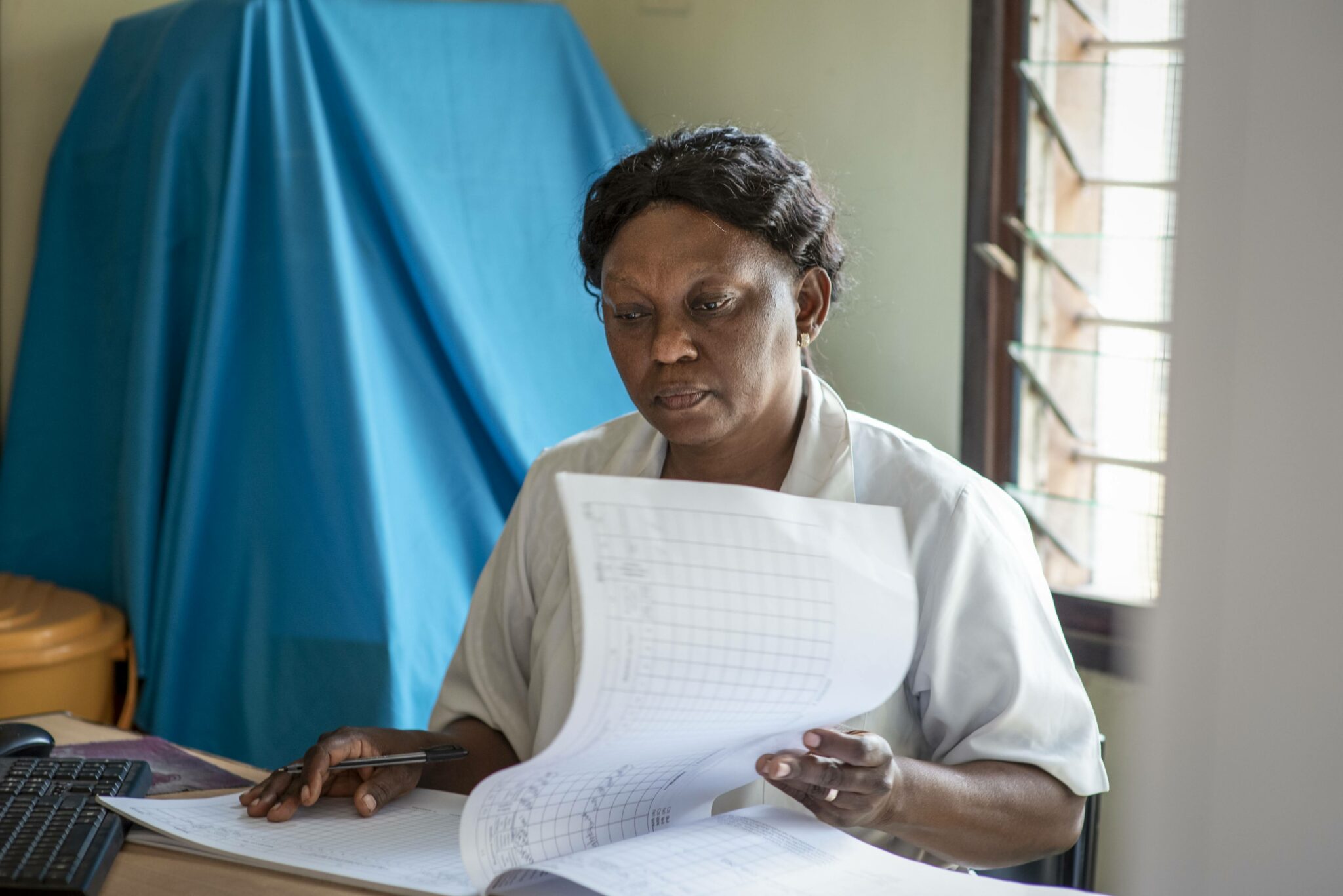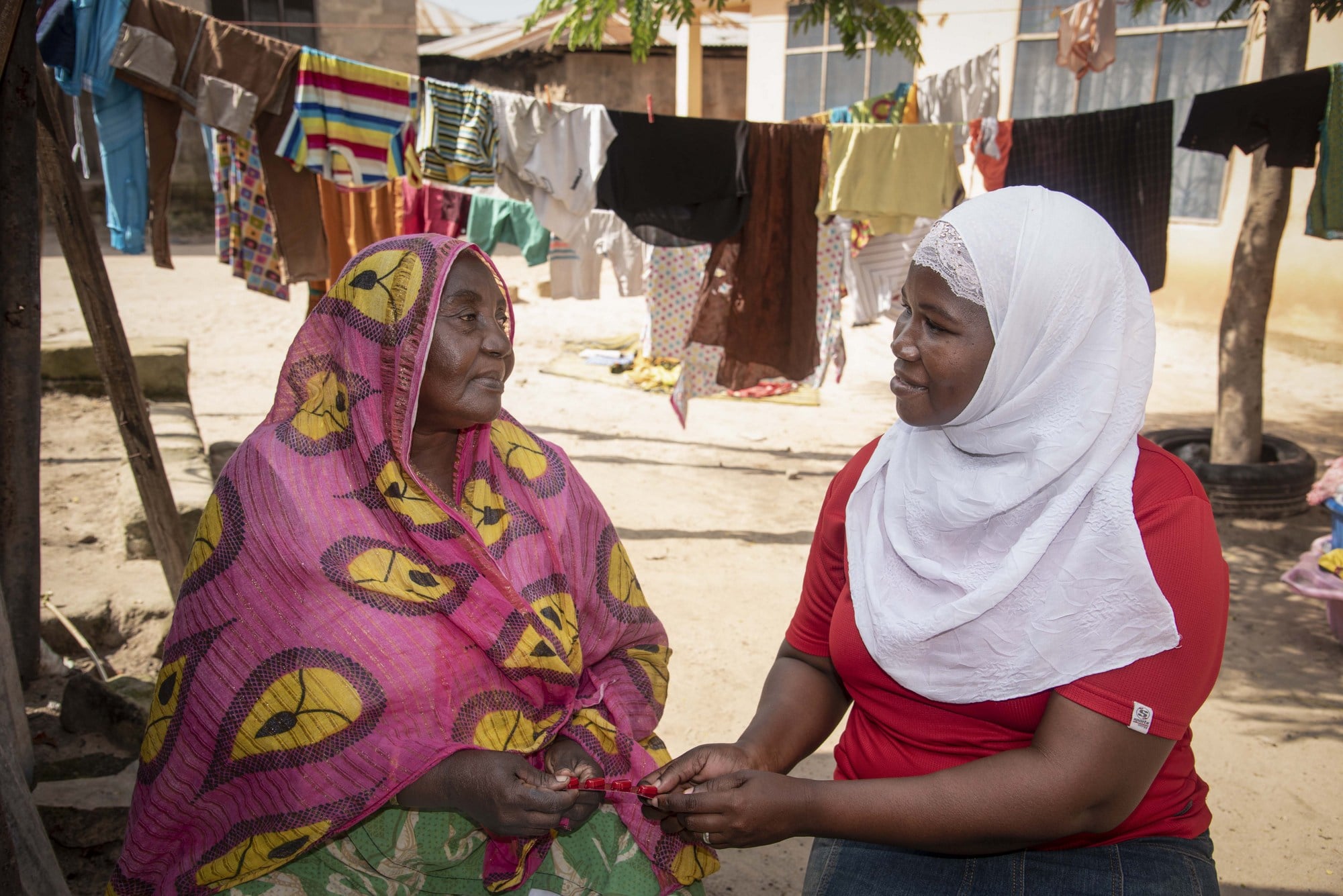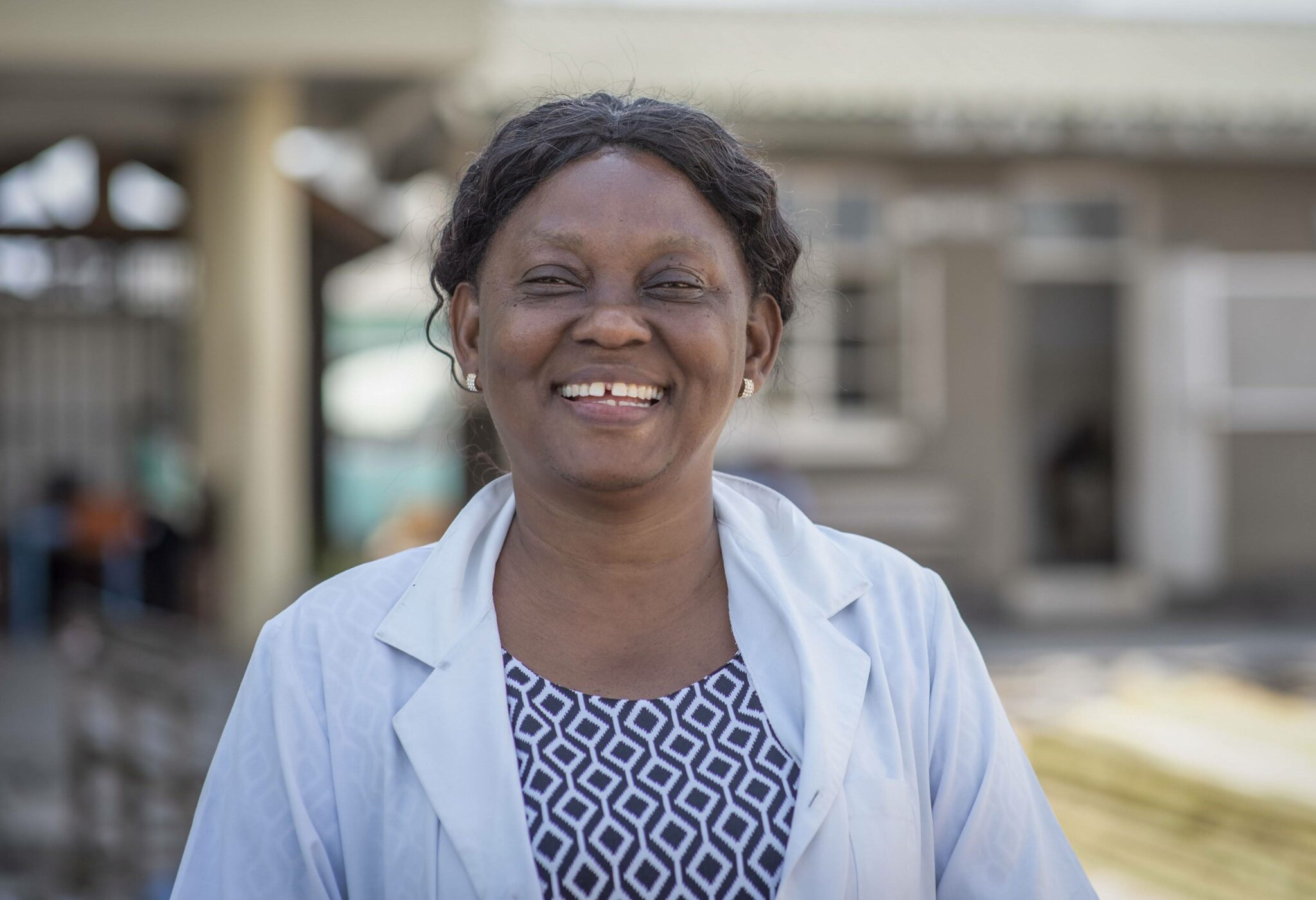Dr. Leah works at a DOTS clinic in Dar es Salaam, diagnosing and treating patients for tuberculosis (TB).
“My name is Dr. Leah Ndoveni, I live and work in Dar es Salaam at the DOTS clinic at Mbagala Rangi 3 Hospital, one of APOPO’s partner health facilities. Dar es Salaam is the largest city and financial hub of Tanzania with an estimated population of 7.7 million people and has the highest TB incidence rates in the country.
Typically, my days start early and end late. In the clinic, we prioritize patients based on the “first come, first served” principle, and on average, we see around 100 patients daily. A presumptive patient begins by registering in a register, and for diagnosis, they need to provide two sputum samples: one for APOPO and another for our clinic which we test with smear microscopy. If TB is detected, we contact the patient the following day to initiate TB treatment. In cases where the sputum diagnosis is negative, we conduct a chest X-ray for further screening. However, often we receive results from APOPO before we need to do that, confirming that a patient previously diagnosed as negative has contracted TB and should begin treatment.

APOPO has greatly assisted our clinic, helping many patients get treatment over the ten years that I have worked in the TB clinic. Before the introduction of second-line screening using trained rats, there were cases where patients continued to suffer without confirmation of bacterial presence through X-ray or smear microscopy.
A significant number of patients delay, sometimes for weeks, in seeking medical advice following symptoms. Sadly, there is also a tendency for patients to seek various herbal and medicinal treatments before finally coming to the hospital meaning they endure significant suffering and continue to spread the illness.
Poor knowledge of TB symptoms, misconceptions and fear of stigma in relation to HIV, higher rates of unemployment, and limited accessibility are relevant factors in causing delays in seeking health care. When they finally come in, we test them and they receive a tuberculosis diagnosis, they feel very relieved and grateful. in most cases as they start experiencing improvement within a few weeks of beginning their medication.

This is also why community-based organizations like MUKIKUTE are so important. MUKIKUTE is made up of ex-TB patients who raise awareness, supervise treatment and support newly diagnosed patients and their families, and fight the stigma of TB. They visit patients at home, speak to neighbors and family members about best practices and help them to stay on track for the full course of treatment.
It is crucial to foster powerful collaborative partnerships such as with APOPO and MUKIKUTE to stop the spread of TB. If we aim to decrease TB cases, we need to treat more patients, so they do not pass it on to their families, friends, and colleagues. I strongly acknowledge that APOPO is an invaluable partner for our clinics and hospitals. They should be allowed to expand to include even more clinics in other regions. Together we can reduce TB deaths and new cases, and stop the economic and social burden of TB.”

